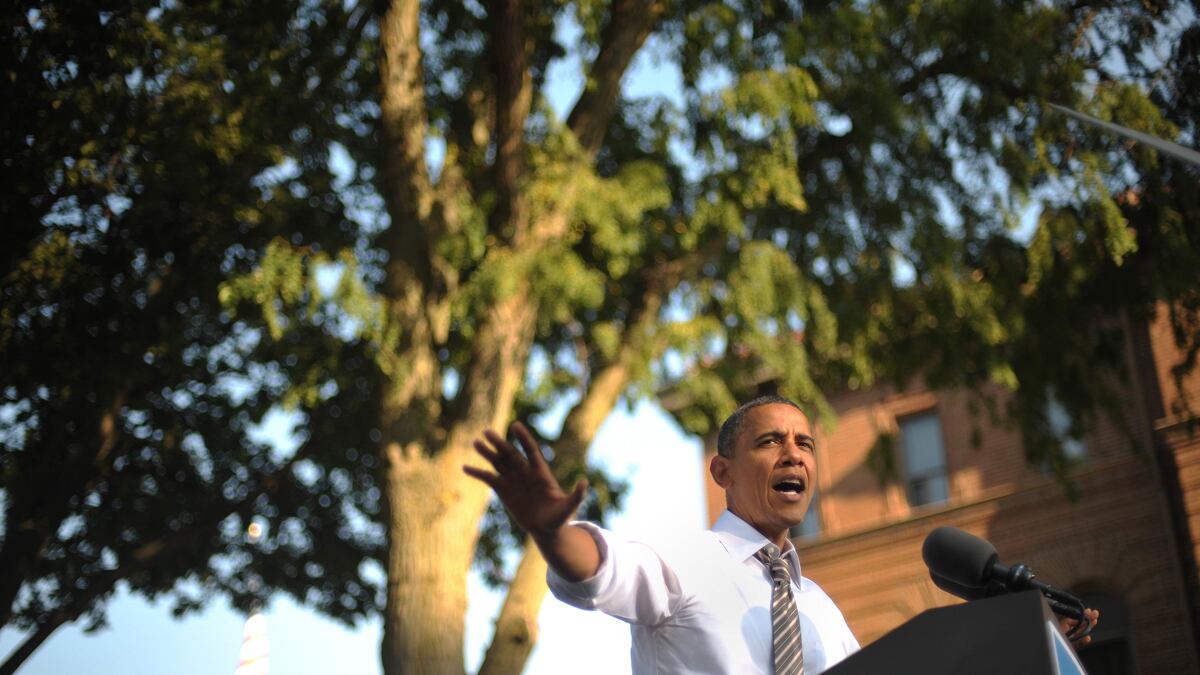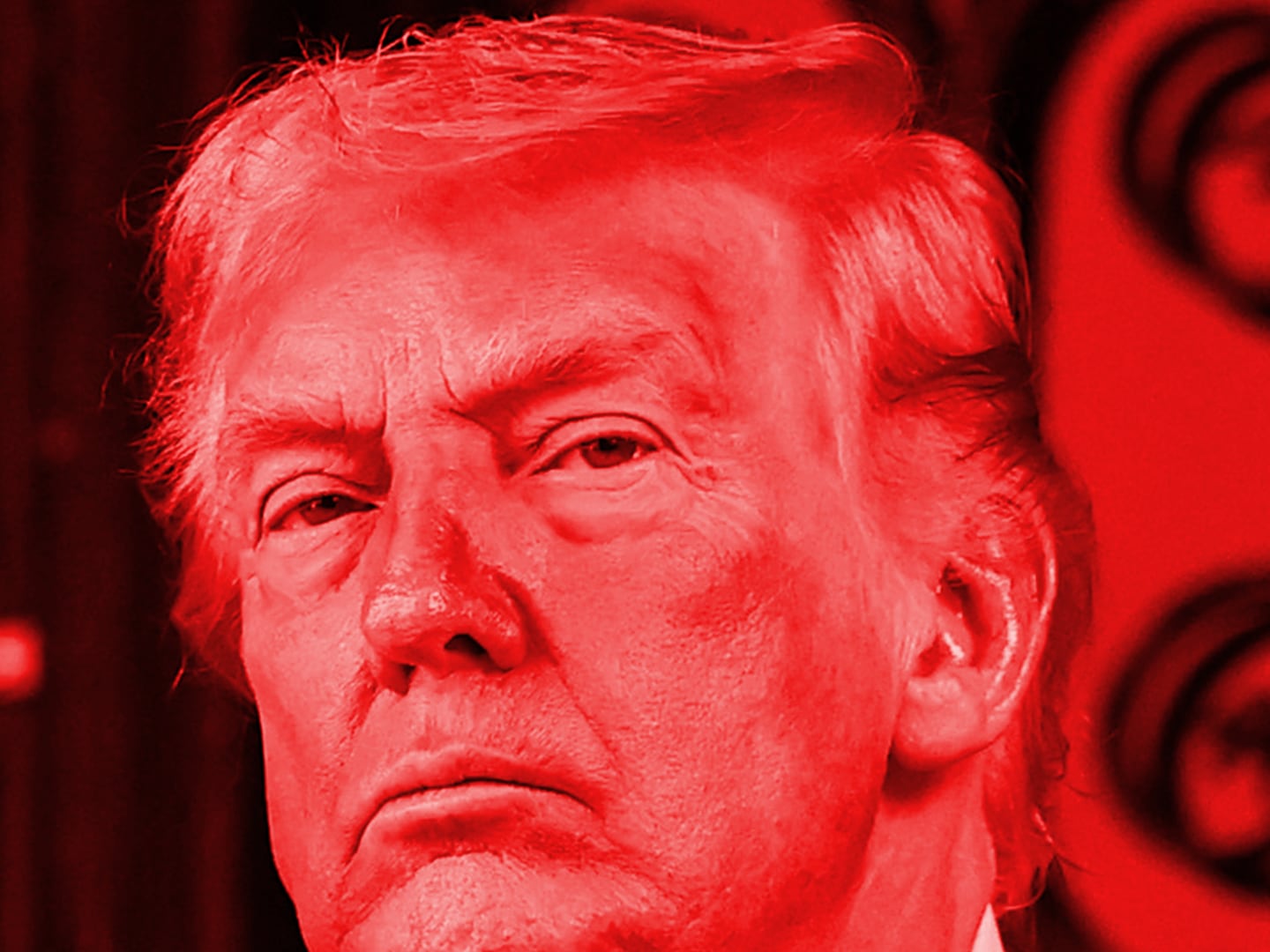This week in Charlotte, N.C., Barack Obama will answer Mitt Romney. It’s a doable task, given that Obama is one of the most gifted orators in modern American history, and Romney, as he reminded us Thursday, is not. But to succeed, Obama’s speech must include two phrases that he doesn’t usually utter on the stump. The first is “financial crisis.” The second is “budgetary crisis.”

In this campaign, Romney and Obama are offering dueling narratives of national decline. Romney’s take, basically, is that America was a good and hopeful place—a place where government left people alone to realize their dreams—until Barack Obama and his Washington-knows-best philosophy came along and screwed it up. “When every new wave of immigrants looked up and saw the Statue of Liberty, or knelt down and kissed the shores of freedom just 90 miles from Castro's tyranny, these new Americans surely had many questions,” Romney said in his acceptance speech. “But none doubted that here in America they could build a better life, that in America their children would be more blessed than they.” Until Obama, that is. “Today,” Romney continued, “four years from the excitement of the last election, for the first time, the majority of Americans now doubt that our children will have a better future.”
On several levels, this is nonsense. As commentators have pointed out, it’s not true that Americans only became pessimistic about their children’s chances on Obama’s watch. More fundamentally, Romney’s decline narrative ignores a small episode called the “greatest financial crisis since the depression,” a crisis in which the stock market lost roughly half its value in the 18 months before Obama took office.
It’s easy to understand why Romney ignores the financial crisis. Given that it arose, at least in part, from Washington’s failure to adequately regulate Wall Street, the financial crisis doesn’t easily fit Romney’s argument that America’s economic woes are the result of too much government. But Obama doesn’t mention the financial crisis much in his stump speech either.
Yes, Obama has his own narrative of decline: Americans were living the dream until folks who believed in an “old, discredited Republican philosophy: give more and more to those with the most and hope that prosperity trickles down to everyone else,” took power. That generic description of right-wing economics, however, is too vague to capture specific cataclysm that occurred in 2008. It’s not enough for Obama to say that George W. Bush got America into a mess and that Romney would be a Bush redux.
He needs to explain how a failure of regulation enabled the financial crisis, which triggered the ongoing economic crisis, and use that specific example to rebut the GOP’s claim that government regulation is causing America’s economic woes. Politically, one of Obama’s greatest blunders has been his failure to offer a coherent, accessible explanation for the financial meltdown that preceded, and in many ways defined, his presidency. It was this intellectual vacuum that helped enable the rise of the Tea Party, which has in turn created a post-Bush GOP that is, amazingly, even more convinced of near-infallibility of the unregulated market than it was before 2008. If Obama doesn’t address the financial crisis this week, he will have failed, yet again, to effectively answer back.
The second term Obama needs to utter is “budget crisis.” The reason is simple: there is one. When Romney chose Paul Ryan, he created an enormous temptation for Democrats. The temptation is to spend so much time attacking Ryan’s answers to America’s budgetary woes that Democrats don’t acknowledge that Ryan is offering the wrong solution to a very real problem. Conservatives like to suggest that only they realize how dangerous America’s mounting debt is. This week in Charlotte, Obama needs to explicitly disabuse them of this conceit. In fact, he should go further and acknowledge what every Democratic wonk already knows: that government needs to slow the growth of Medicare and Medicaid. He should say this before explaining why it’s both unfair and unserious to craft a deficit reduction package that doesn’t also raise taxes for the rich and cut defense spending. Obama, in other words, must frame this fall’s debate not as an argument over whether to cut the deficit, but over how.
I can see the political danger in describing with any specificity how Obama thinks Medicare should be cut. (For instance, by raising the retirement age.) Democratic consultants would surely argue that any acknowledgment that Democrats also back Medicare cuts muddies the clarity of their attacks on Ryan. However, Obama needs to think not only about campaigning, but also governing. If he never mentions health-care cuts this fall, he’ll find them more difficult to push through in a second term. It’s hard to imagine that Obama doesn’t envision a sweeping deficit reduction bargain as central to the presidential legacy he wants to leave. If he’s serious about that, he should say so in Charlotte. What better way to show up Romney-Ryan than for Obama to utter some hard truths of his own.






